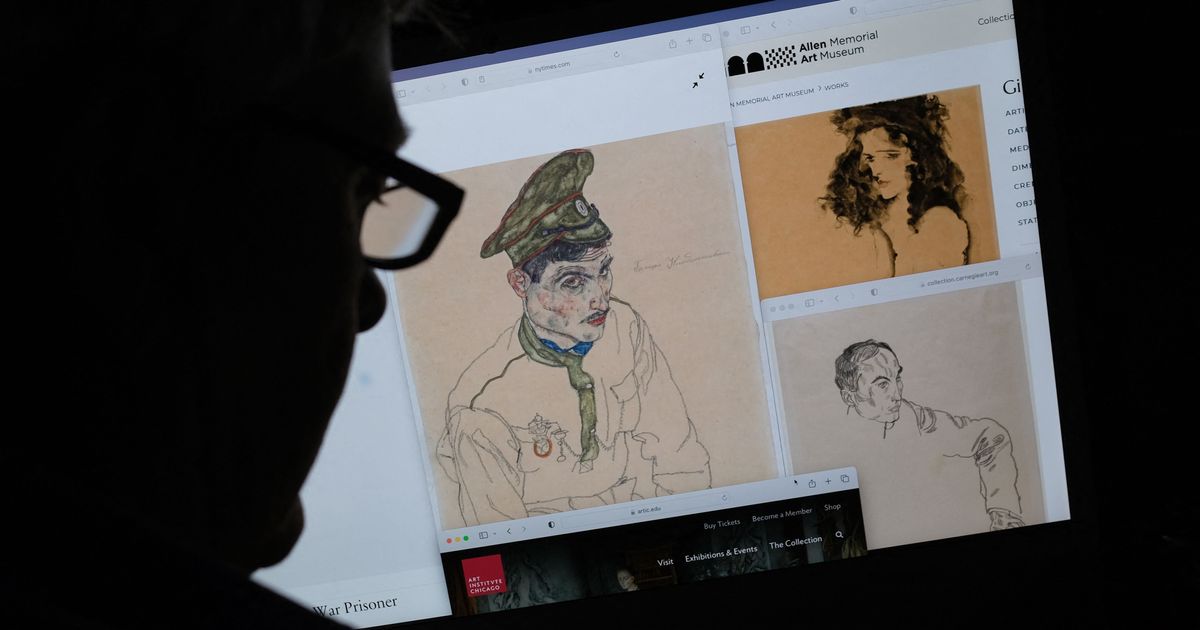Key takeaways:
- Three artworks by Austrian Expressionist Egon Schiele were seized from the Art Institute of Chicago, the Carnegie Museums of Pittsburgh and the Allen Memorial Art Museum at Oberlin College in Ohio.
- The artworks were previously owned by Fritz Grünbaum, a cabaret performer and songwriter who died at the Dachau concentration camp in 1941.
- The seizure of these artworks is part of a larger effort to return stolen art to its rightful owners and to investigate and prosecute those responsible for the theft of art during the Holocaust.
New York law enforcement authorities have seized three artworks believed to have been stolen during the Holocaust from a Jewish art collector and entertainer. The artworks, by Austrian Expressionist Egon Schiele, were previously owned by Fritz Grünbaum, a cabaret performer and songwriter who died at the Dachau concentration camp in 1941.
The artworks were seized on Wednesday from the Art Institute of Chicago, the Carnegie Museums of Pittsburgh and the Allen Memorial Art Museum at Oberlin College in Ohio. The Manhattan District Attorney’s Office released images of the artworks, which include a watercolor and pencil on paper artwork dated 1916 and titled “Russian War Prisoner”.
The artworks were seized as part of a joint investigation by the Manhattan District Attorney’s Office and the New York State Department of Taxation and Finance. The investigation is ongoing and no further details have been released.
The seizure of the artworks is part of a larger effort to return stolen art to its rightful owners. The Holocaust Expropriated Art Recovery (HEAR) Act was passed in 2016 and requires the U.S. State Department to report to Congress on the progress of returning stolen art to its rightful owners.
The seizure of these artworks is a reminder of the importance of returning stolen art to its rightful owners and of the need to continue to investigate and prosecute those responsible for the theft of art during the Holocaust.



Be First to Comment